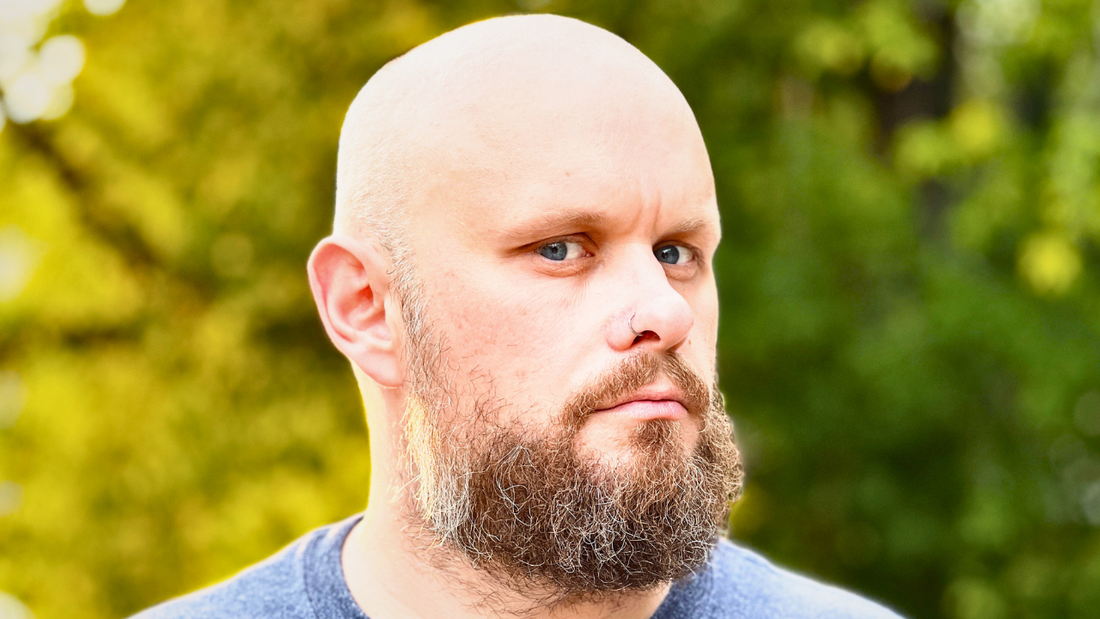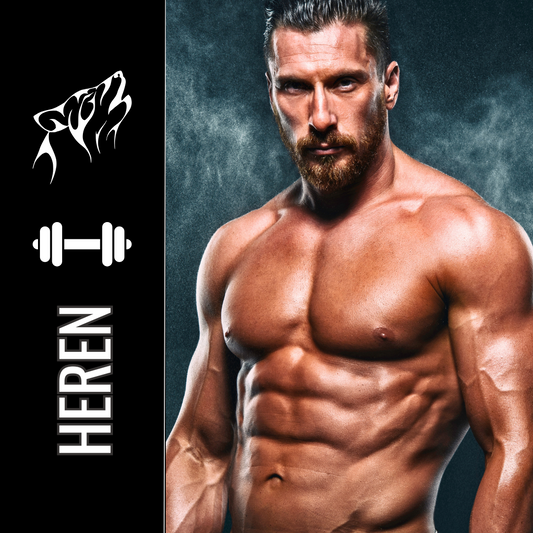
Does using creatine lead to baldness?
Share
There is currently no conclusive scientific evidence proving that creatine causes baldness. The belief largely stems from a single 2009 study conducted on a small group of rugby players. This study found that creatine supplementation appeared to increase levels of dihydrotestosterone (DHT), a derivative of testosterone that is known to contribute to male pattern baldness in genetically predisposed individuals. However, the study did not actually measure hair loss. It only reported hormonal changes. No direct link was established between creatine and hair thinning or loss.
Since then, no large-scale or long-term studies have confirmed these findings. The scientific community generally agrees that more research is needed before any definitive claims can be made. It’s important to note that creatine is one of the most extensively studied supplements in sports science and has a strong safety profile overall, with no robust evidence tying it directly to hair loss.
Why do many people doubt and believe that creatine actually causes baldness?
Many people associate creatine with baldness due to anecdotal evidence and the widespread sharing of the 2009 study's findings without proper context. In a community where appearance and performance are both highly valued, the fear of hair loss can be powerful and emotionally charged. As a result, some athletes may observe natural hair loss due to genetic factors and mistakenly attribute it to their creatine use, especially if the timing coincides.
Additionally, misinformation can spread rapidly through fitness forums, social media, and gym conversations. Without clear scientific backing or proper education on the matter, these myths can become deeply rooted. This skepticism is understandable, especially given the personal nature of hair loss, but it highlights the importance of evidence-based decision-making.

Any serious studies done on this?
Beyond the 2009 South African study, very few clinical studies have directly examined the relationship between creatine supplementation and hair loss. Most research on creatine has focused on its effects on muscle strength, performance, and recovery, with consistently positive and safe outcomes. The lack of focused research on hair loss and creatine means that any claims remain speculative at best.
Importantly, subsequent studies have not replicated the findings regarding increased DHT levels. Furthermore, even if creatine were to increase DHT marginally, that would not automatically translate to hair loss unless the person is genetically predisposed to androgenic alopecia (male pattern baldness). So while the question is scientifically valid, the current body of evidence does not support a strong or causal relationship.
Can baldness be caused by something other than creatine in the bodybuilding lifestyle?
Yes, many other factors within a bodybuilding lifestyle can potentially contribute to hair loss. One major factor is the use of anabolic steroids or testosterone boosters, which can significantly increase DHT levels and accelerate hair thinning in genetically predisposed individuals. These substances are far more strongly linked to hair loss than creatine.
Stress, both physical and mental, can also play a role. Intense training without adequate recovery can elevate cortisol levels and disrupt hormonal balance, which may contribute to hair shedding. Nutritional deficiencies, particularly in iron, zinc, biotin, and essential fatty acids, can also impair hair health, as can extremely low body fat levels due to excessive dieting or cutting.
Other things that can cause baldness:
Baldness is most commonly driven by genetics, particularly in cases of androgenic alopecia. However, other contributing factors include:
Hormonal imbalances: Thyroid disorders or elevated DHT levels can contribute to hair loss.
Medications: Certain drugs like antidepressants, blood thinners, and chemotherapy agents are known to affect hair.
Poor nutrition: Deficiencies in key vitamins and minerals, such as Vitamin D, B12, or iron, can weaken hair follicles.
Hairstyling practices: Tight hairstyles (like man buns or braids), excessive heat, and chemical treatments can damage hair.
Stress and illness: Both emotional stress and physical illnesses (like autoimmune diseases) can trigger temporary hair loss, known as telogen effluvium.

If you have too much doubt about this:
If you're deeply concerned about the potential link between creatine and hair loss, the most effective approach is to consult with a medical professional. Preferably a dermatologist or trichologist (hair specialist). They can assess whether your hair loss is due to genetic factors, lifestyle, or other medical issues, and guide you on safe supplementation practices.
You may also consider pausing creatine supplementation temporarily to monitor whether there are any noticeable changes. Keep in mind that correlation does not imply causation, many factors influence hair health. Ultimately, making informed decisions based on scientific evidence and professional advice is far better than acting on fear or misinformation.
Remember: If you're not predisposed to male pattern baldness, it's very unlikely that creatine alone would cause hair loss.
What can you do if you have already become bald?
If you’re already experiencing baldness and it affects your confidence or mental well-being, you're far from alone and there are several solutions available, both medical and cosmetic. The first step is understanding the cause of your hair loss, as this can influence your treatment options. Consulting with a dermatologist or trichologist can help determine whether the hair loss is due to androgenic alopecia (male pattern baldness), an autoimmune condition (like alopecia areata), or another medical issue.
For those dealing with male pattern baldness, the most evidence-based medical treatments are minoxidil (Rogaine) and finasteride (Propecia). Minoxidil is a topical treatment that can slow hair loss and promote regrowth in some individuals, while finasteride is an oral medication that reduces DHT levels, thereby slowing or even halting hair loss progression. Both treatments require ongoing use to maintain results and may have side effects, which should be discussed with a healthcare professional.
If you're seeking a more permanent or aesthetic solution, options like hair transplant surgery or scalp micropigmentation are worth exploring. Hair transplants redistribute hair from one part of the scalp to thinning areas, with natural-looking results when done well. Scalp micropigmentation, on the other hand, involves tattooing tiny dots on the scalp to give the illusion of fuller hair or a shaved-head look. For those who prefer non-medical solutions, high-quality hair systems or wigs have also evolved significantly and can provide a realistic and confident appearance.

Any supplements not great for your health?
Yes, while many supplements can support health and performance when used appropriately, there are several that should be approached with caution or avoided altogether due to potential risks, lack of evidence, or unsafe dosages. The supplement industry is not as tightly regulated as pharmaceuticals, which means quality and purity can vary widely between brands.
Testosterone boosters (e.g., D-aspartic acid, tribulus terrestris, and proprietary blends): These often claim to increase testosterone levels, but the scientific support is weak. Some may affect hormone balance and potentially lead to unwanted side effects such as mood swings, acne, liver strain, or even hair loss. In some cases, these products can also contain hidden anabolic steroids, which are illegal and dangerous.
Fat burners (especially stimulant-based ones like DMAA, synephrine, or yohimbine): These products often contain aggressive stimulants that can elevate heart rate, increase blood pressure, and put strain on the cardiovascular system. Some have been banned or flagged by health authorities due to serious side effects, including heart attacks and strokes. Even legal fat burners can disrupt sleep, cause anxiety, or lead to dependence.
"Natural" Detox products or colon cleanses: These are often marketed with exaggerated claims and little scientific support. Some can cause dehydration, disrupt gut health, or interfere with the absorption of nutrients. The human body already has an efficient detox system (liver, kidneys, lungs), and most of these supplements do more harm than good.
When choosing supplements, it’s crucial to research the ingredients, check for third-party testing (e.g., NSF Certified for Sport, Informed-Sport), and consider whether you truly need the product. Whole foods, sufficient rest, and a well-structured training program often yield far better results than any unregulated supplement.
If you're currently cutting or planning to lower your body fat soon, the video below might be helpful. It’s my personal documentary showing how I dropped down to 6% body fat.
Author:
Badreddine Boutaybi

























































